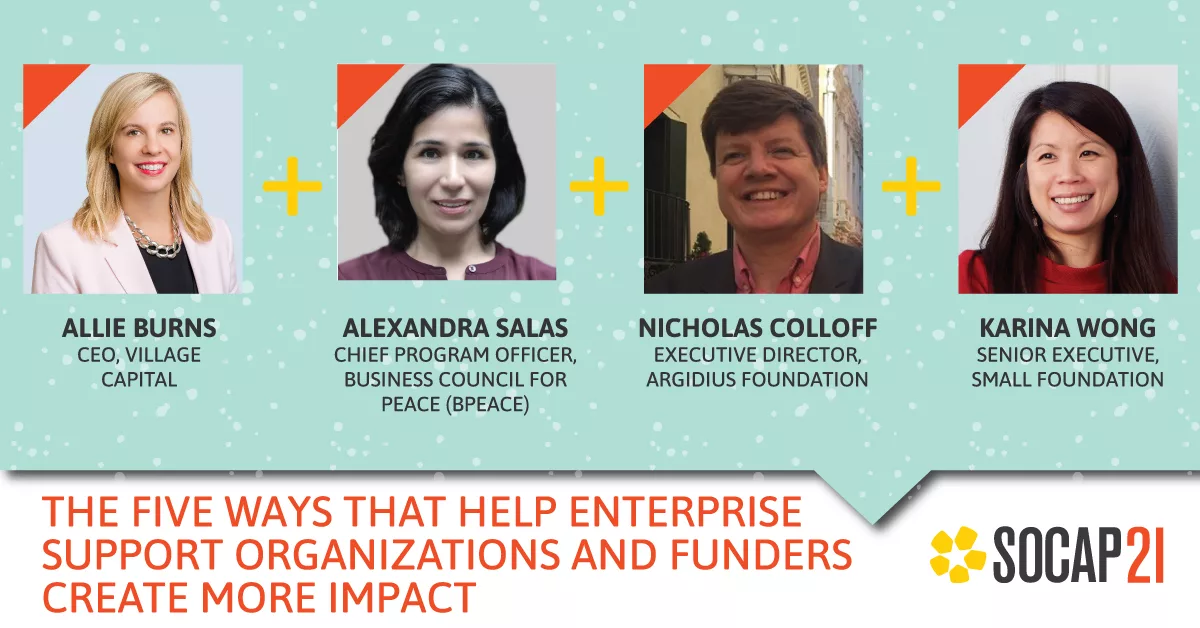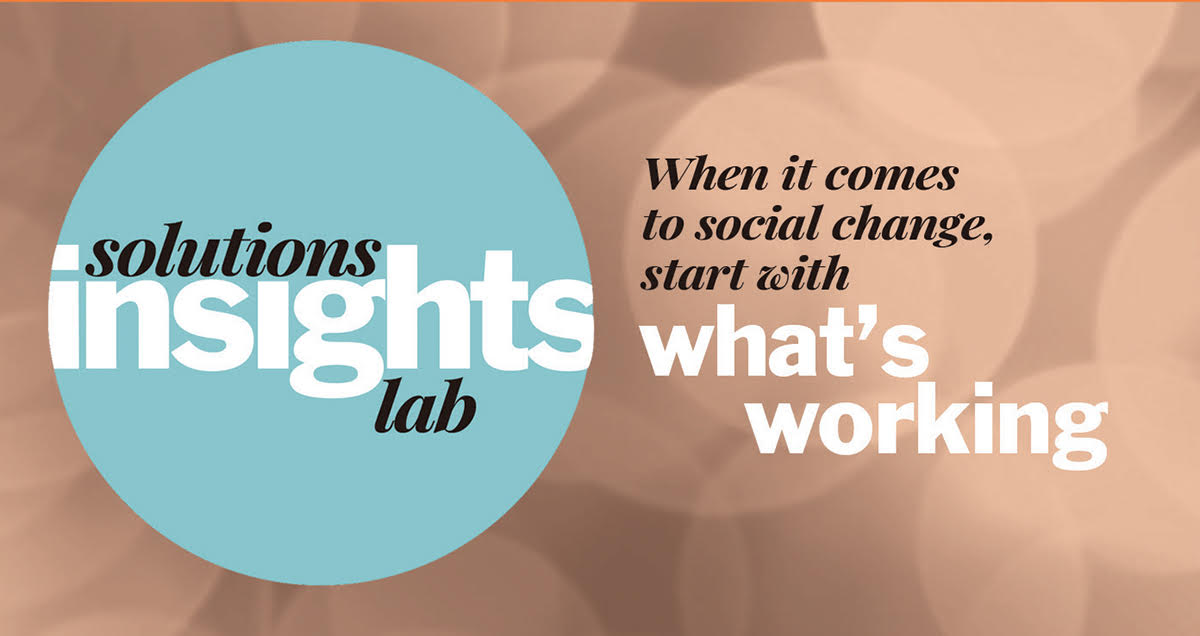SCALE Framework Enhances Outreach by Entrepreneur Support Organizations
Entrepreneur support organizations typically vary in their effectiveness, but there is growing evidence in the field and in academia that reinforces five distinguishing characteristics of effective entrepreneur support programs. Simple, cost-effective changes to align with these characteristics have been found to guide entrepreneurs in their journey and enhance their company’s impact.
The SOCAP21 session on The Five Ways that Help Enterprise Support Organizations and Funders Create More Impact addressed how these characteristics helped two leading entrepreneur support organizations increase and scale their impact, and how two funding organizations have integrated the characteristics to amplify their work.
As Executive Director of the Argidius Foundation, Nicholas Colloff oversees the private family foundation’s support for enterprise organizations in Africa and Latin America. “About 10 years ago we started supporting small and growing businesses (but) we didn’t know what worked,” he said. “Did business interventions actually work? Did accelerators actually accelerate? Or were they just good at picking winners?”
With a goal to provide the most effective business development services, the Argidius Foundation launched a research effort that involved more than 50 organizations, more than 100 programs, and more than 10,000 businesses. Through that effort, the foundation identified five considerations that help drive the effectiveness of entrepreneur support programs — characteristics now known as the SCALE framework:
- Select the right enterprise.
- Charge the enterprise for your services.
- Address problems.
- Learn by evaluating enterprise performance.
- Lead by example.
Small Foundation Senior Executive Karina Wong said the SCALE framework has enhanced the Ireland-based foundation’s work with business development support organizations to eliminate extreme poverty in sub-Saharan Africa in three key ways. It has been incorporated into the evaluation process for entrepreneur support organizations; helps reveal specific areas of focus or best practices at the organizations; and identifies where the Small Foundation might be able to best support the organization.
Wong said the foundation also is working with Village Capital to develop a diagnostic tool that incorporates the SCALE framework to better understand the market landscape for the entrepreneur support organizations. For example, she said, consider a high-tech urban startup versus a small enterprise in a rural area.
“Effectively is hard to measure because there’s such a diversity of approaches out there and actually different needs amongst the enterprises,” Wong said. “The SCALE framework also helps us think about segmentation and effectiveness among different organizations.”
At Village Capital, CEO Allie Burns and her team use a peer-reviewed-based model to make investment decisions with early-stage entrepreneurs. In the last decade, the firm has supported more than 1,200 entrepreneurs in their efforts to build more robust, inclusive ecosystems.
Working with a cohort of entrepreneurs, Village Capital identifies a problem statement and incorporates their varied perspectives so they are able to learn from each other. “All companies at multiple stages benefit from a peer-to-peer environment,” she said. “It’s not a matter of impact versus maturity, it’s a matter of what is the right kind of support at that time for that company.”
Alexandra Salas, Chief Program Officer at the Business Council for Peace (Bpeace), said the global nonprofit made two changes as it incorporated the SCALE framework for its work to help small and medium businesses grow in crisis-affected communities.
The first was starting to charge a tier-based fee for its customized business consulting services — a move done with input from businesses that had participated. “The simple shift in charging for our programs brought them in as key stakeholders or clients,” she said. “Engagement increased, and it also created efficiencies within our programs as we didn’t have to chase businesses to participate or engage.”
The other shift was around programming and learning to better reflect the time constraints that entrepreneurs often face, she said. “A fundamental strength of Bpeace is that we have field staff who spend a lot of time building trust and relationships. We understand a business is not just a business — it’s a human,” she said, noting that the duration of programming has been shortened and now incorporates more time for entrepreneurs to talk with and learn from their peers.
It can be a challenge to effectively design programs that help educate and support entrepreneurs but don’t create an extra burden for them, Colloff said. “We can expect entrepreneurs to be learning too much. What we’ve seen is we need to give people the time and space to actually implement what they’re learning for new challenges to emerge and for people to help them address their challenges.”
Watch The Five Ways That Help Enterprise Support Organizations and Funders Create More Impact
Speakers
Allie Burns, Village Capital
Alexandra Salas, Business Council for Peace
Nicholas Colloff, Argidius Foundation
Karina Wong, Small Foundation





